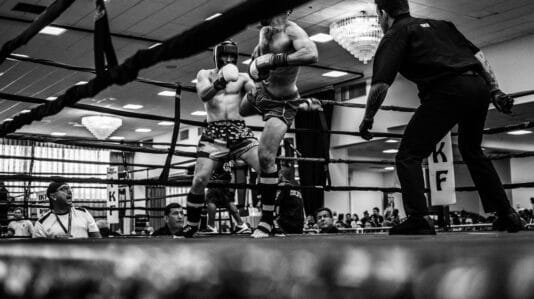Athlete sponsorship agreements are a valuable means for athletes to secure financial support, gain exposure, and build long-term partnerships with brands. These agreements offer mutual benefits, but they also involve complex legal considerations that athletes must be aware of. Understanding the legal dos and don’ts of sponsorship agreements can empower athletes to make informed decisions and protect their interests in these partnerships.
Understanding Terms and Obligations
Before signing any sponsorship agreement, thoroughly review and comprehend its terms and obligations. Pay special attention to the following:
- Promotional Activities: Clearly understand the brand’s expectations regarding promotional appearances and social media posts (often called “deliverables”), and use of your likeness for marketing purposes.
- Exclusivity and Conflicts: Check for exclusivity clauses that may restrict you from endorsing competitor brands. Avoid sponsorships that could interfere with current obligations and create conflicts of interest that could harm existing partnerships.
- Contract Duration: Be aware of the agreement’s length and any renewal clauses. You may want to retain the right to move on from a sponsor or re-negotiate after a reasonable amount of time. As your success and brand grows, so should your price.
Disclose Endorsements Transparently
Be open and honest with your audience and followers. Disclose any sponsored content to your audience explicitly, adhering to the advertising guidelines set by social media platforms or relevant authorities.
Maintain Professionalism
Maintaining professionalism is paramount in athlete sponsorship agreements. As a brand ambassador, it is essential to act responsibly and uphold the values and standards expected by both your sponsors and audience. Whether you’re promoting the sponsoring brand online through social media posts, blogs, or videos, or engaging in offline promotional events, always conduct yourself in a manner that reflects positively on the brand you represent.
Don’t Neglect Intellectual Property Rights
Be cautious about granting the right to use your name, image, or logo to the sponsoring brand. Clearly define and limit the scope of these rights within the agreement to avoid any potential unauthorized use of your identity or branding. Your name, image, and logo are valuable assets that contribute significantly to your personal brand and public image. Allowing a sponsor to use them can be a powerful marketing tool and enhance your visibility. However, it also opens the possibility of misuse or overuse, which could lead to dilution or confusion among your fan-base and audience.
Within the sponsorship agreement, make sure to outline the specific purposes for which the sponsor can use your identity or branding. Whether it’s for promotional materials, advertising campaigns, social media, or specific events, define the boundaries clearly. Additionally, include a clause that prohibits the sponsor from using your name, image, or logo for any other purpose not explicitly mentioned in the agreement.
Keep in mind that exclusivity is another vital aspect to consider. If the sponsor is granted exclusive rights to your identity or branding within a specific market or industry, it could restrict your ability to partner with other brands that may offer better opportunities in the future – another reason why contract duration is so important.
Don’t Overlook Payment Terms & Performance Metrics
When entering athlete sponsorship agreements, it is crucial not to overlook the payment terms. Clearly specifying the payment details, such as the exact amount, payment frequency, and any performance-based incentives, ensures that both parties are on the same page regarding compensation. A well-defined payment schedule helps prevent misunderstandings and delays, ensuring that athletes receive their deserved earnings promptly for their efforts in promoting the sponsoring brand.
Equally important is incorporating performance metrics into the agreement. Defining key performance indicators (KPIs) sets a measurable framework for assessing the success of the partnership. These metrics could include social media engagement, event participation, product sales generated through the athlete’s promotion, or any other relevant data. By establishing these metrics from the outset, sponsors can assess the effectiveness of the partnership and make data-driven decisions, while athletes have clear goals to strive towards.
Termination Clauses
A well-crafted termination clause is essential to protect the interests of both the athlete and the sponsor. It should outline the specific circumstances under which either party can end the agreement without breaching the contract. These circumstances might include failure to fulfill obligations, late payments, or changes in circumstances that significantly affect the agreement’s purpose. For instance, if the sponsor fails to provide the agreed-upon support or payment, the athlete should have the right to terminate the agreement without facing any legal consequences. Conversely, if the athlete breaches the terms, the sponsor may have grounds for termination as well.
When outlining the consequences of termination, it’s vital to address issues such as the return of any upfront payments or equipment provided by the sponsor. Additionally, consider including a confidentiality clause or a non-disparagement clause, which prevents either party from making negative comments about the other after the agreement’s termination.
Unreasonable Restrictions
Athletes should be wary of signing agreements that impose unreasonable restrictions on their personal lives or careers. While some level of exclusivity might be necessary for the sponsor’s marketing efforts, overly restrictive clauses can hinder an athlete’s growth and limit potential opportunities.
For example, an agreement that prevents the athlete from endorsing or collaborating with competitors for an extended period might hinder their ability to maximize earnings and broaden their brand exposure. Similarly, restrictions that interfere with the athlete’s ability to pursue personal projects or participate in other sports-related events could prove detrimental to their career development.
Before signing any sponsorship agreement, carefully review the terms and make sure the restrictions are reasonable, considering your career goals and future aspirations. Negotiate with the sponsor to find a balanced approach that benefits both parties.
Conclusion
Athlete sponsorship agreements can be game-changers in an athlete’s career, providing short and long-term financial support and exposure while aligning with reputable brands. However, it’s crucial to approach these agreements with diligence and legal awareness. Consulting a sports attorney with experience in sponsorship agreements is a wise step. An attorney can help you negotiate favorable terms, identify potential risks, and ensure compliance with applicable laws.




